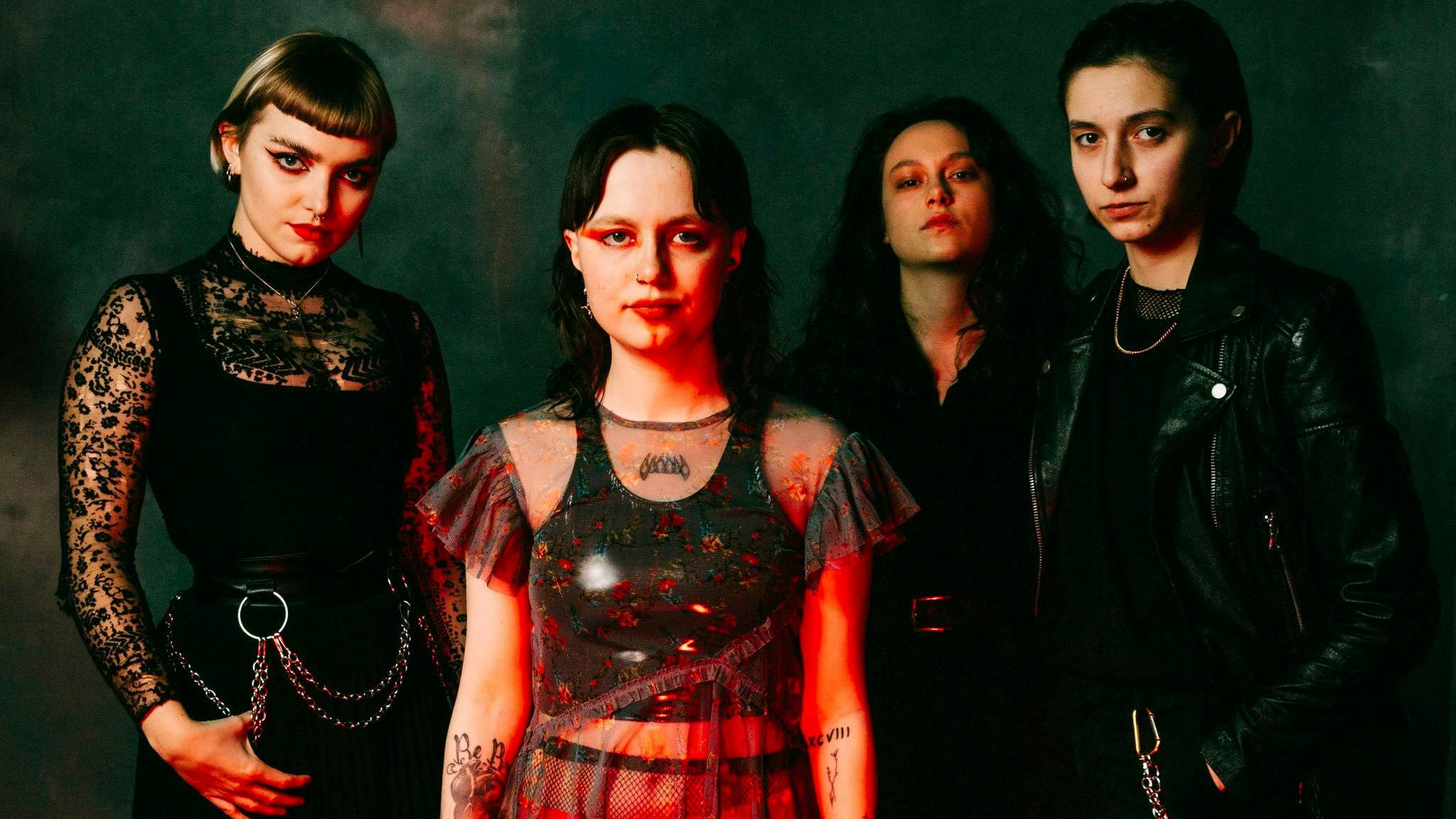In the music video for In Birth, Amy is a raging punk pastor screaming, 'Get out of my c**t, I’ll fucking eat you alive!' from a church pulpit. The dramatic piece of film ends with Amy drenched in blood, her bandmates rocking out around her in the house of God.
Amy explains that she has every respect for people that have faith, although never having it herself. “I think that the people in the church, men specifically, used this 'power of God' and the idea that they were a 'prophet of God' to control people and abuse their power. They did it to stay powerful, I guess.”
Back in 1612, the pagan belief systems that King James feared were ones that promoted season-based ritual, herbal healing and a strong kinship with the natural world. Notably, though, they often centered around and worshipped women and female spirits (e.g. Mother Earth). In the eyes of vindictive and insecure leaders, like King James I and many others around Europe, these beliefs were seen as a direct threat to the patriarchal system that served them. It was around this time that witch fever took hold and women were in the crosshairs.
The criteria for a witch accusation to be thrown at you included; being over the age of 40, being single, being poor, using herbal remedies and having a disability. Once accused it was near impossible to prove otherwise. The respect once held for the female elders and healers in the community turned to demonisation and fear – one that can still be seen clearly every Halloween when children dress up in 'old hag' witch costumes.
But what has changed since then? “We’re not getting killed anymore, but we also kind of are,” Alisha says, bluntly. Amy adds, “There are more subtle things, like poor healthcare and abortion laws, things like that. We might not get burned on the stake anymore, but all the smaller things come together. There is a constant undercurrent of sexism that women are battling against every day. It doesn’t have to be really obvious for it to be damaging.”
